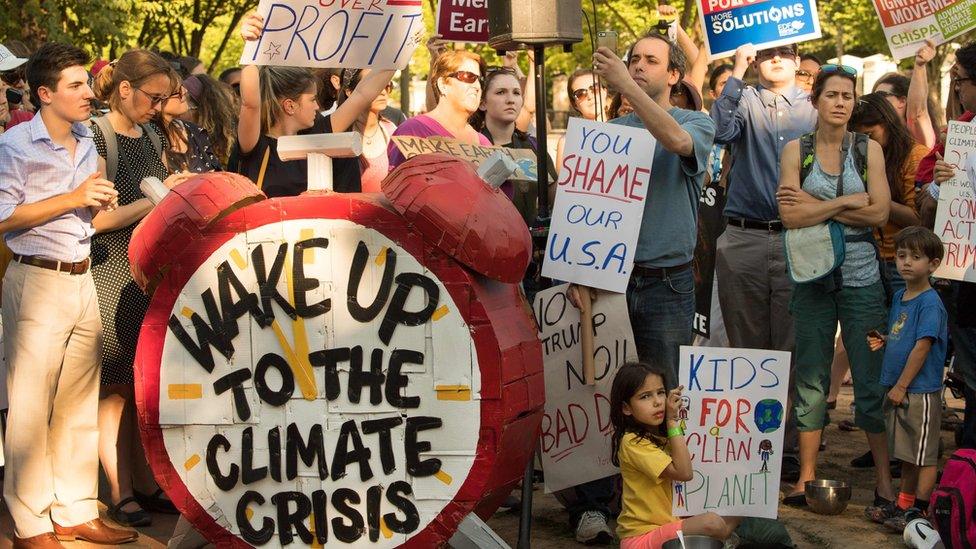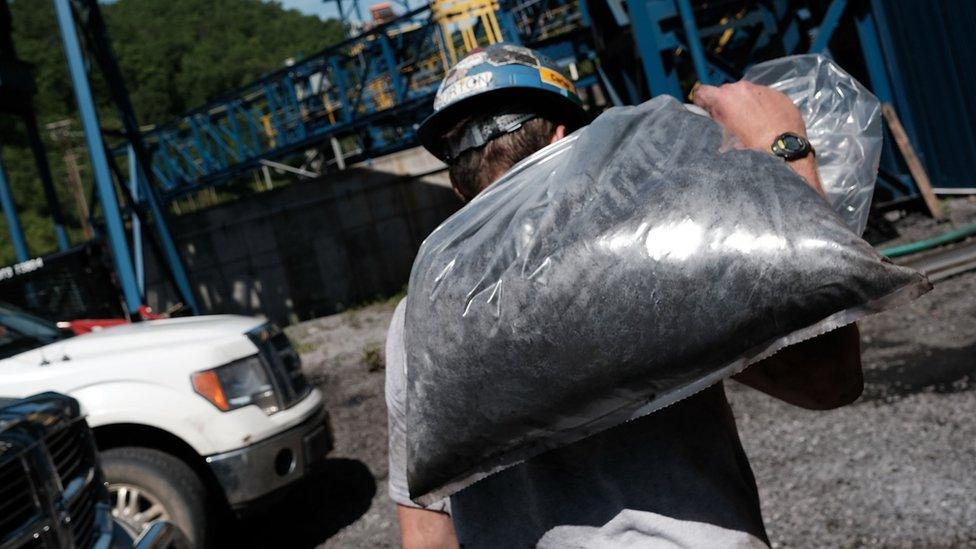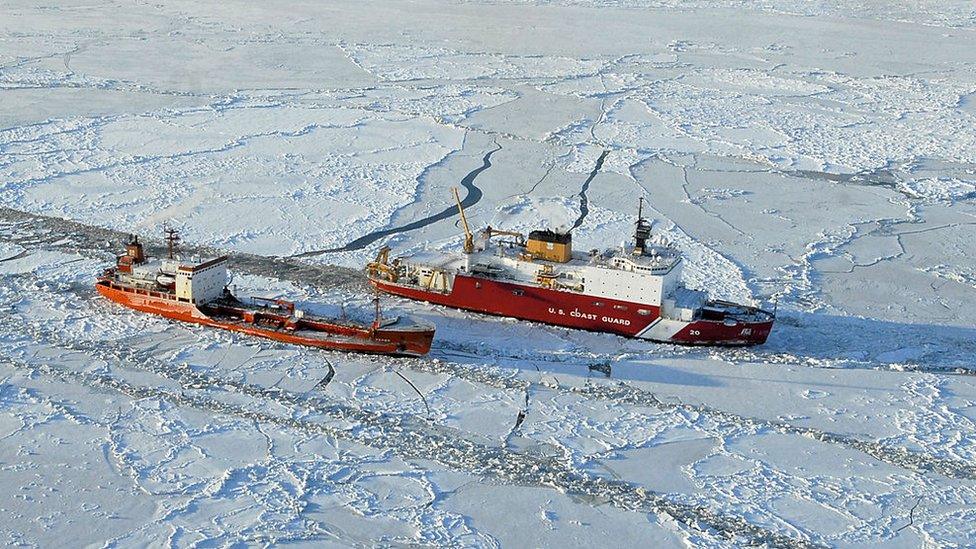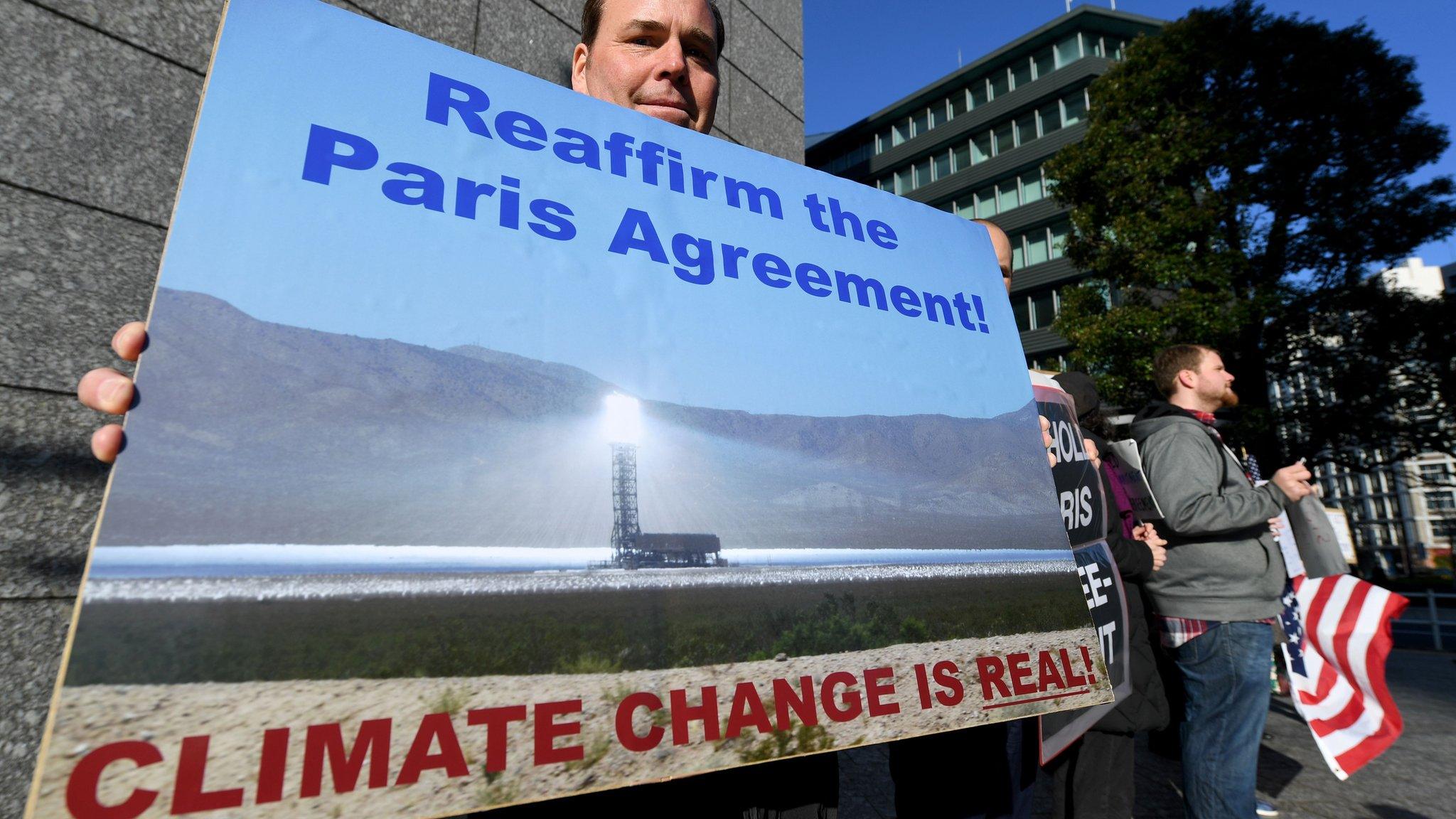Paris agreement: Without Trump, will US cities tackle climate?
- Published

People protested outside the White House after President Trump announced the US would pull out of the Paris accord
As soon as US President Donald Trump announced his withdrawal from the Paris climate change agreement, governors and mayors of places including Washington, New York and California banded together to uphold the commitments in it.
How much can they do on a local level?
There's plenty they can do - but it won't make up what's lost.
The Democratic governors of the three states say they represent 10% of US greenhouse gas emissions combined, and one in five Americans. Their United States Climate Alliance is designed to "convene US states committed to upholding the Paris Climate Agreement and taking aggressive action on climate change".
In California, legislators voted to get 100% of the state's energy needs from renewables by 2045. It followed in the footsteps of Hawaii, Portland and Salt Lake City, which have similar targets.
And mayors representing 82 cities and 39 million Americans have written an open letter, external pledging to increase their commitment to renewable energy and electric cars, and "adopt, honour, and uphold the commitments to the goals enshrined in the Paris Agreement".
One report, external suggests that if all US cities participated, they could contribute 6% of the greenhouse gas savings the world needs to stick to the target.
Under the Paris agreement, the US had agreed to:
cut its greenhouse gas emissions by 1.6 billion tonnes by 2025
contribute up to $3bn in aid to poorer countries through the Green Climate Fund
The cut in greenhouse gas emissions was part of a global effort to keep temperature rises below 1.5C (3.5F) above pre-industrial levels. If the US pulls out and other countries do not adjust their plans, that target will not be met, which would raise the risks of flooding, extreme weather including heat waves, and changes to freshwater patterns and food production.
As for the financial shortfall: the $3bn was meant to help poorer countries deal with the effects of climate change, and fund the development of clean energy technologies. Of this, $1bn had already been paid. Now that the US has pulled out, there is a $2bn shortfall.
Students from Hazleton, Pennsylvania, a coal area, are divided on Trump's Paris pullout
Bloomberg Philanthropies, run by former New York City mayor Michael Bloomberg, has offered $15m to cover a separate shortfall. It will give the money to the United Nations Framework Convention on Climate Change (UNFCCC), and says it could cover staff costs associated with negotiations and communications.
Mr Bloomberg struck a defiant tone when announcing his funding pledge, saying: "Americans are not walking away from the Paris Climate Agreement. Just the opposite - we are forging ahead.
"Americans will honour and fulfil the Paris Agreement by leading from the bottom up - and there isn't anything Washington can do to stop us."
What's the reaction in Pittsburgh?
"I was elected to represent the citizens of Pittsburgh, not Paris," Mr Trump said . This was slapped down by the city's mayor, who tweeted , externalthat Pittsburgh would follow the deal's guidelines "for our people, our economy and future".
Historically a manufacturing city, Pittsburgh suffered economic collapse in the 1980s when the steel industry's fortunes declined, but has recovered through investment in technology and research.
However, Pennsylvania emains the fourth-biggest coal-producing state, external in the US.
While Pittsburgh voted for Hillary Clinton, rural parts of the state went the other way and are a core part of Mr Trump's support.
Another coal mine is due to open soon about an hour and a half's drive outside Pittsburgh, but it will bring with it just 70 jobs. In the state of Pennsylvania more people work in the renewable energy industry than in mining, oil and gas combined.
Mr Trump also mentioned the other so-called Rust Belt cities of Youngstown, Ohio, whose Democratic mayor said "nothing about the US withdrawal would seem to indicate any form of job creation" for his city, and Detroit, Michigan, whose mayor has not yet commented.

Parts of the US have a strong coal history but struggle with unemployment today - like West Virginia, above; these are some of the places where Mr Trump commands a large support base
Who still burns coal, anyway?
Power stations - some of them, that is.
Coal as a means of making electricity is declining around the world. In the US, natural gas has overtaken it as a power station fuel, partly due to fracking bringing the prices down.
And renewable energy sources like solar and wind power are tumbling in price, meaning coal is not likely to become a major player again.
It hasn't been a major source of heat for people's homes for years, either, having been largely overtaken by gas.
Coal industry representatives, though, are among the few people who welcomed Mr Trump's withdrawal.
Peabody Energy, America's biggest coal mining firm, said the Paris agreement would have badly affected the US economy. And Murray Energy's chief executive said in a statement that Mr Trump's decision was "supporting America's uncompromising values, saving coal jobs, and promoting low-cost, reliable electricity for Americans and the rest of the world".
So without the US, is the Paris accord doomed?
Not at all.
The Chinese are stepping up, as are major European countries such as Germany and France.
Many businesses - including Apple, Goldman Sachs and even oil companies such as Exxon - have pledged to uphold their commitments. They will find themselves with less federal co-ordination but alongside US cities and states.
In fact the global outcry at the US exit just might concentrate other countries' efforts in the pursuit of the targets laid down in Paris.
- Published11 May 2017

- Published1 June 2017
- Published2 June 2017

